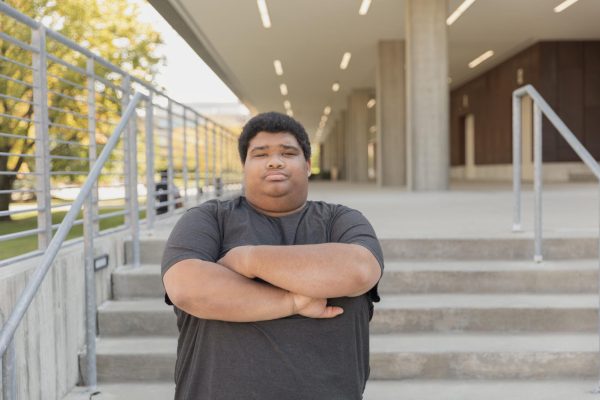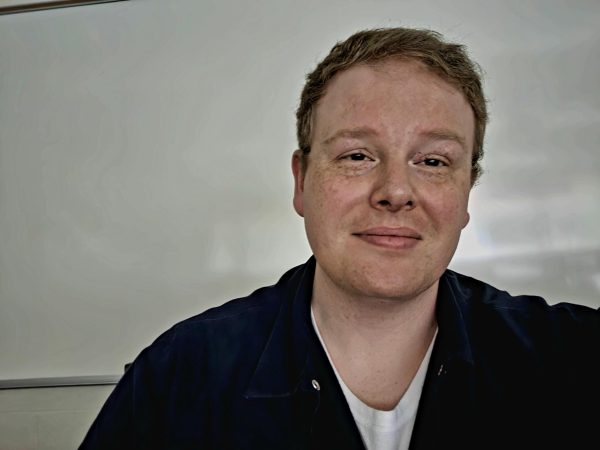Letter to the editor: Teachers are people
When my oldest son was three, we happened to see his beloved day-care teacher at the grocery store. We were surprised at his reaction. When we dropped him off at the day care, he ran to her. At the store, however, he cowered in fear. We laughed and explained that she wasn’t supposed to exist outside the day care center.
Looking back now, I think the joke was right. It is all too easy to imagine our teachers are exclusively teachers. In spite of the fact that most teachers I know spend most of their waking hours teaching, they are, in fact, people. They occasionally have lives outside of their jobs: homes, families, mortgages, hobbies, partners, bills, aspirations, fears, doctors, pets and medical problems. Although no teacher forgets these other parts of their lives, many of them do see themselves as teachers. I certainly do. In spite of this fact, it is important to recognize they are human. In fact, I think it’s important to see them as workers. Thinking of them as people who work brings into focus all of these other elements of their lives. However much teachers love their jobs, they rely on their jobs to sustain themselves. Thinking of them as teachers also brings into focus the conditions of their labors.
In particular, I’d like to call attention to the working conditions of the Special Lecturers on campus. A Special Lecturer (SL) is a professor without job security. Many of them have earned the same Ph.Ds as their colleagues in the tenure track. Many of them have years of experience as excellent teachers. Many of them have distinguished records of publication, having written books and articles. Yet too often they are treated as second-class citizens. For example, the most obvious difference between their work situation and that of their tenure-track (TT) colleagues is the drastically lower pay they receive relative to their departmental colleagues and the absence of job security. There are other important differences as well, including the fact that the university does not provide computers or offices for SLs.
I’m not going to get into the numbers about compensation and benefits other than to say that the administration and the Board of Trustees refuse to contribute to their retirement. One of the most important elements of the faculty bargaining position in last summer’s contract negotiations was to increase both pay and benefits of SLs. The administration and the Board refused to budge. The faculty did succeed in resisting their efforts to increase the proportion of SLs among the faculty. I believe the board is revealing their vision of OU’s future: a faculty made up of under-compensated professors with no job security. This is a vision dominated by the misguided notion that compensating faculty less (and administrators more) will magically help the university fulfill its mission of teaching students. It’s a vision in which teachers are an expense, not human beings.
Because the effects of the terrible salary are fairly obvious, I’m going to focus on other elements of the situation of SLs: the absence of job security, offices, and computers. Unlike tenure track faculty, who are hired with the understanding that they will earn tenure and remain at the university indefinitely, Special Lectures are hired for one year, renewable indefinitely. After four years, they are employed for renewable two-year terms. If the new contract is approved, that period will be extended to four-year renewable terms after eight years.
These abbreviated terms of employment do not serve the interests of SLs—or their students. In the English department where I teach, our Special Lecturers have been with us for many terms (over a decade). We choose to renew their contracts because we know them to be excellent teachers. Their students respond to their expertise, their enthusiasm, their investment in their teaching. In fact, I’m sure our students have no idea which of their professors are SLs and which are TT. Spending more than a decade of their lives devoted to teaching at one university ought to earn them job security and benefits. They’ve invested enough of their energies here that the university should recognize their efforts to invite them to make Oakland their professional home.
If the Board of Trustees and the administration treated its SLs as human beings working to advance the mission of the university, it would provide them with the equipment needed to do that work. When OU pivoted online in the Fall of 2020, many SLs had to spend their own money to acquire equipment (laptops, webcams). It is wrong to expect underpaid workers to buy the equipment necessary to do their jobs. Even outside the bizarre circumstances of the pandemic, teaching in 2021 is a computer-driven enterprise. Providing SLs with computers would not only recognize their humanity by giving them what they need to do their jobs, it would also help them serve the students who are the reason the university exists.
It would be easier for SLs to see Oakland as their home if the university provided them offices. An office is not a luxury. It is not merely a place to store books. It’s a place to do much of the work for classes—create syllabuses, prepare plans for a class, read, research and so on. Most importantly, when students want to talk with their professors—to seek help for assignments, ask questions about exams, look for guidance about matters academic and otherwise. For most of these things, privacy is essential—indeed, the law requires it. If a SL has no office, where would they meet with students? The university does provide one office for all SLs to share, but a shared office is not conducive to either student privacy or prep work for classes. In recognition of this unfair situation, some of my tenure track colleagues in the English department share offices with our SL colleagues if their schedules coordinate. This is, at best, a temporary solution. It has to be adjusted each semester (as teaching schedules change over time). And an ad hoc shared office is not a place that fosters belonging, a permanent place to expand into a community. Providing permanent offices for SLs would reciprocate their efforts to contribute to the OU community while creating a better learning environment for students.
OU must do better.






Anonymous • Oct 2, 2021 at 5:48 PM
Offices-shmoffices. That’s mundane. Fall Faculty Festival is the real token appreciation people devoid of conscience can offer. I hope that Pescovitz, Rios-Ellis, and all these meachants-cunninghams will enjoy zero attendance.